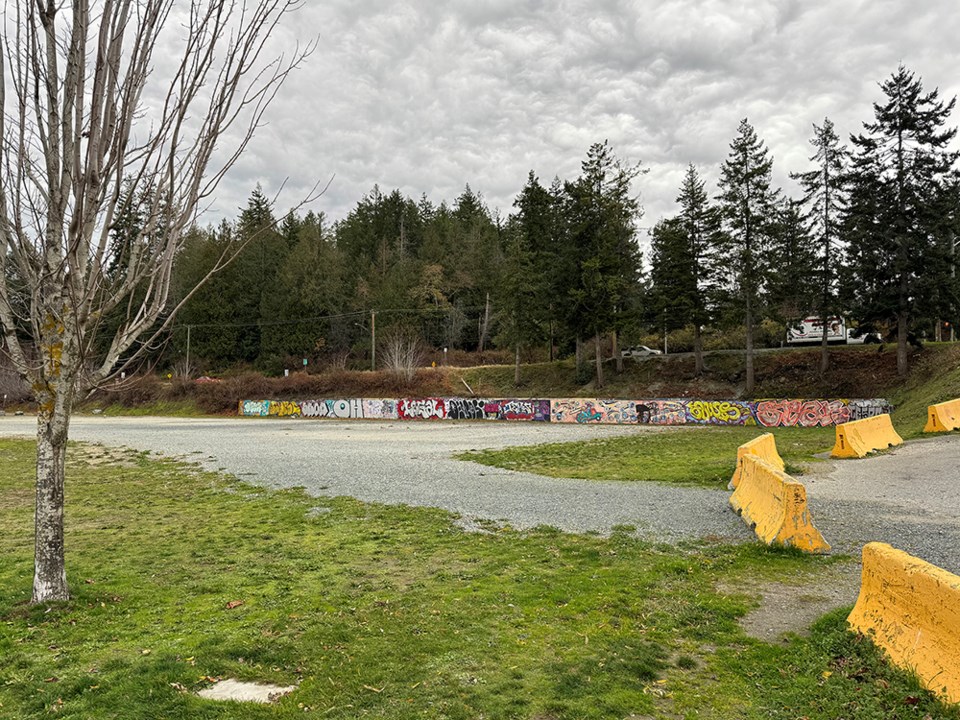City of Powell River councillors were provided an update on the downtown plan process, which outlined the prospective options for city-owned properties within the downtown core.
At the November 14 committee of the whole meeting, manager of planning services Daniella Fergusson said the land use feasibility study was being reported on, with a summary of the findings of Parcel Economics, the consultants who were hired to survey the downtown core and report on realistic conditions and achievable improvements.
Parcel Economics principal Chris White said his company had conducted a market feasibility scan, followed up by a financial feasibility testing of some conceptual development programs.
“What we realized fairly quickly through our research was the stark contrast of the four subsets we were looking at,” said White. “The old arena site and Westview wastewater treatment plant show the most promise from the non-financial perspective, largely as a function of the size and location, configuration and ability to support more total volume or area of development.”
The other two properties examined included a city property at 4351 Marine Avenue and the old barge terminal.
White said every potential investor, whether they be public, private sector, nonprofit and all in between, has different goals, and that includes financial and non-financial, what their risk appetite is, and what kind of order of magnitude of returns is desired.
Another Parcel Economics spokesperson, Ryan Taylor, said there was a bit of bad news: hard building costs have escalated significantly. He added that increasing interest rates make it more challenging to carry financing costs. He said the cost to revenue relationship is such that even with increasing revenues, costs are outpacing them.
Taylor said the population of the city is growing and there is great housing demand, but some of the concepts that were modelled represent some of the largest developments the city has seen, so there is question of whether the city’s growth can support that sort of market uptake to really absorb the residential market and make it viable.
Taylor said the land value of the old arena site was assumed at $6 million, which is what the city would receive if it disposed of the property. He said in assessing the property, rental is more profitable than ownership, however, it takes a lot of time to earn the profit.
“That’s a lot of patient money and some developers might not be willing to wait that long, looking for quicker return on their investment,” said Taylor.
Key points
White said the development prospects are in the right place but are at the wrong time. He said he didn’t want to leave the impression that the old arena site and Westview wastewater treatment plant don’t show promise in terms of future development.
“We think they are great sites; they have great locational characteristics, and they would do tremendous wonders to advance different areas of the downtown,” said White. “It just so happens to be at this point, because of the function of the broader macroeconomics, the feasibility isn’t showing quite what we would hope.
“We would strongly urge the municipality to consider and make some specific decisions around a few key points. Essentially, it involves consideration to outright dispose of public land assets and get an additional injection of money, estimated at around $9.5 million, based on the combination of the old arena site and the wastewater site, versus maintaining that ownership and being a little more patient, waiting for an opportunity for a long-term lease agreement or public—private partnership.”
Councillor George Doubt said it looked like the consultants were not too optimistic about cash-on-cash return for these properties, either by the city selling them to someone else, or by the city maintaining ownership and paying for development. He said the one option he did not see in the report was the value of maintaining the land in its current state.
“We currently are hoping that our real estate will go up in value,” said Doubt. “Maybe it won’t and it will go down but, historically, real estate tends to become more valuable, particularly in the heart of a city. I don’t see an evaluation of simply keeping the land and waiting until development becomes more economically feasible.”
White said in the full report for the city, outlined are the trade-offs or the opportunity cost of a no-development scenario. He said it depends on the patience of the city.
Fergusson told councillors that staff is not looking for any specific direction from the report but was sharing the data for information.
“We still have more engagement to do on the downtown plan,” said Ferguson. “One reason this financial feasibility study is taking place is so the plan is an achievable plan, and that we can talk to the public about weighing these considerations as well.”
Join the Peak's email list for the top headlines right in your inbox Monday to Friday.



